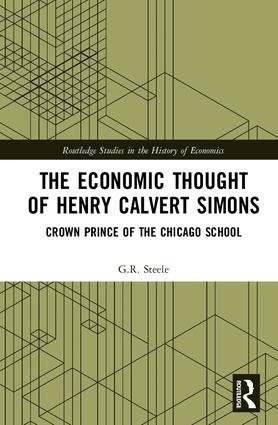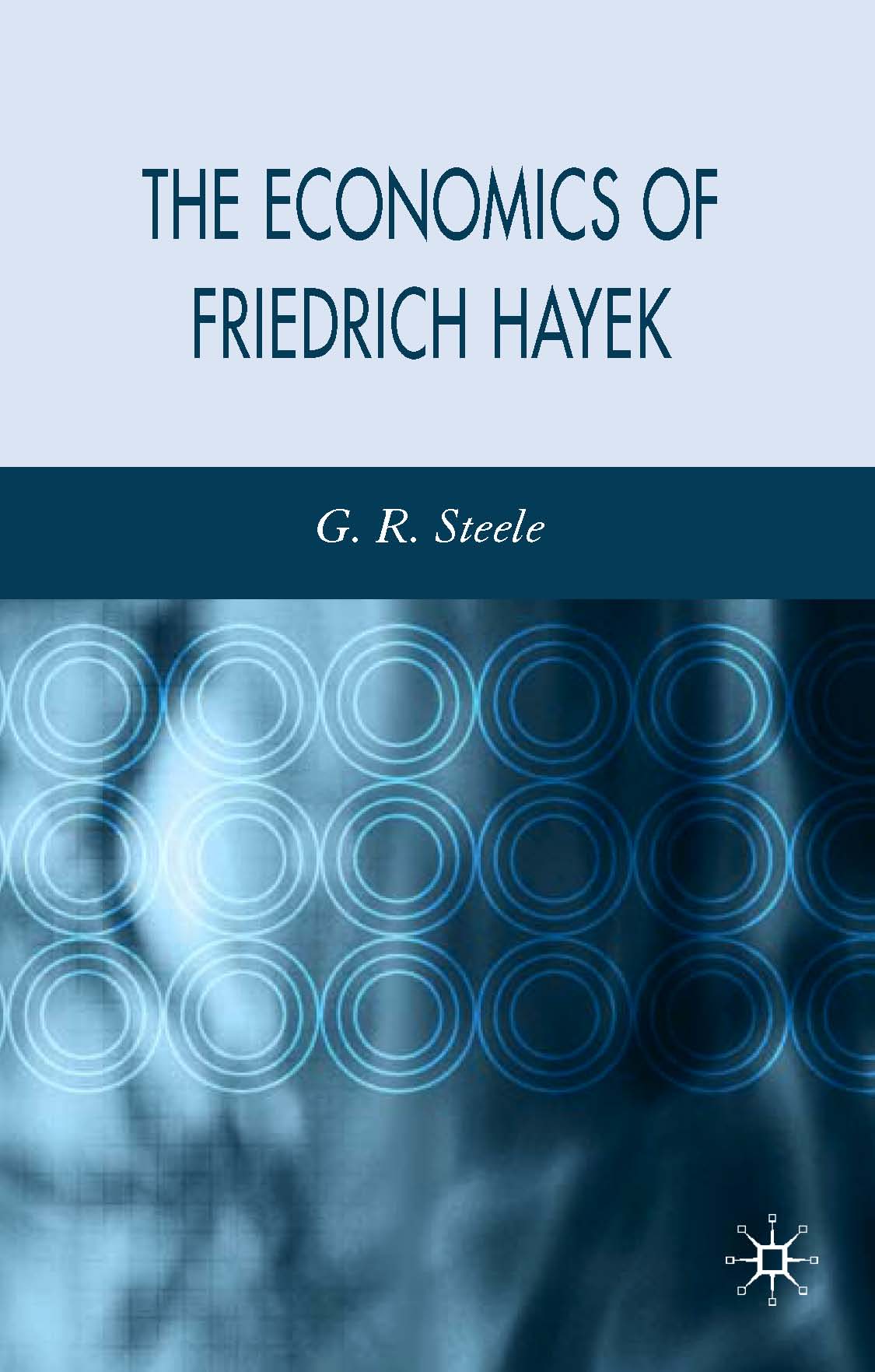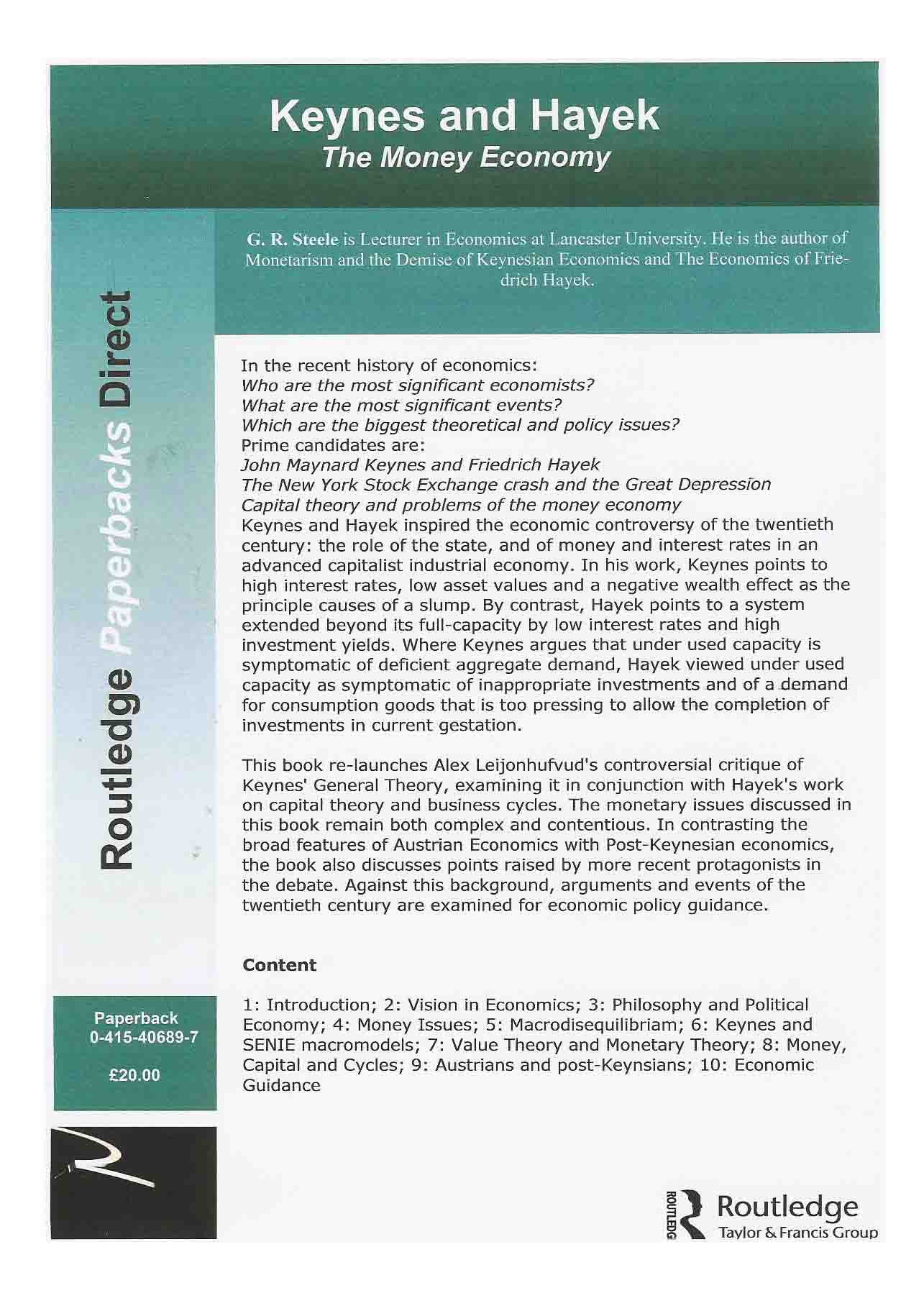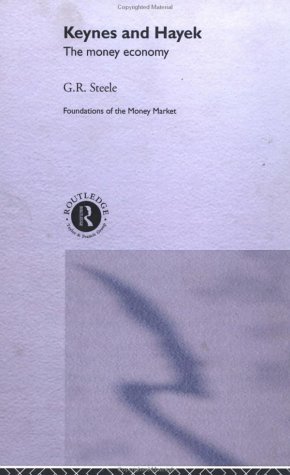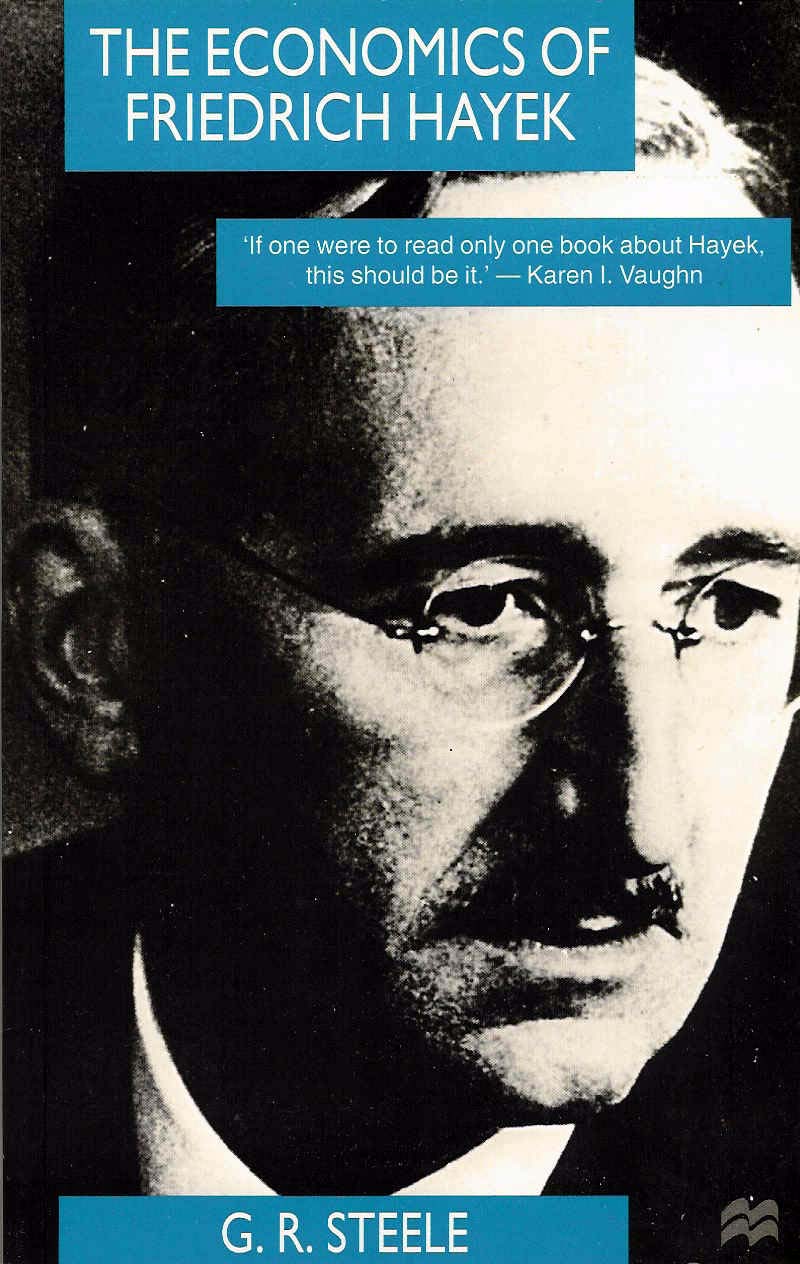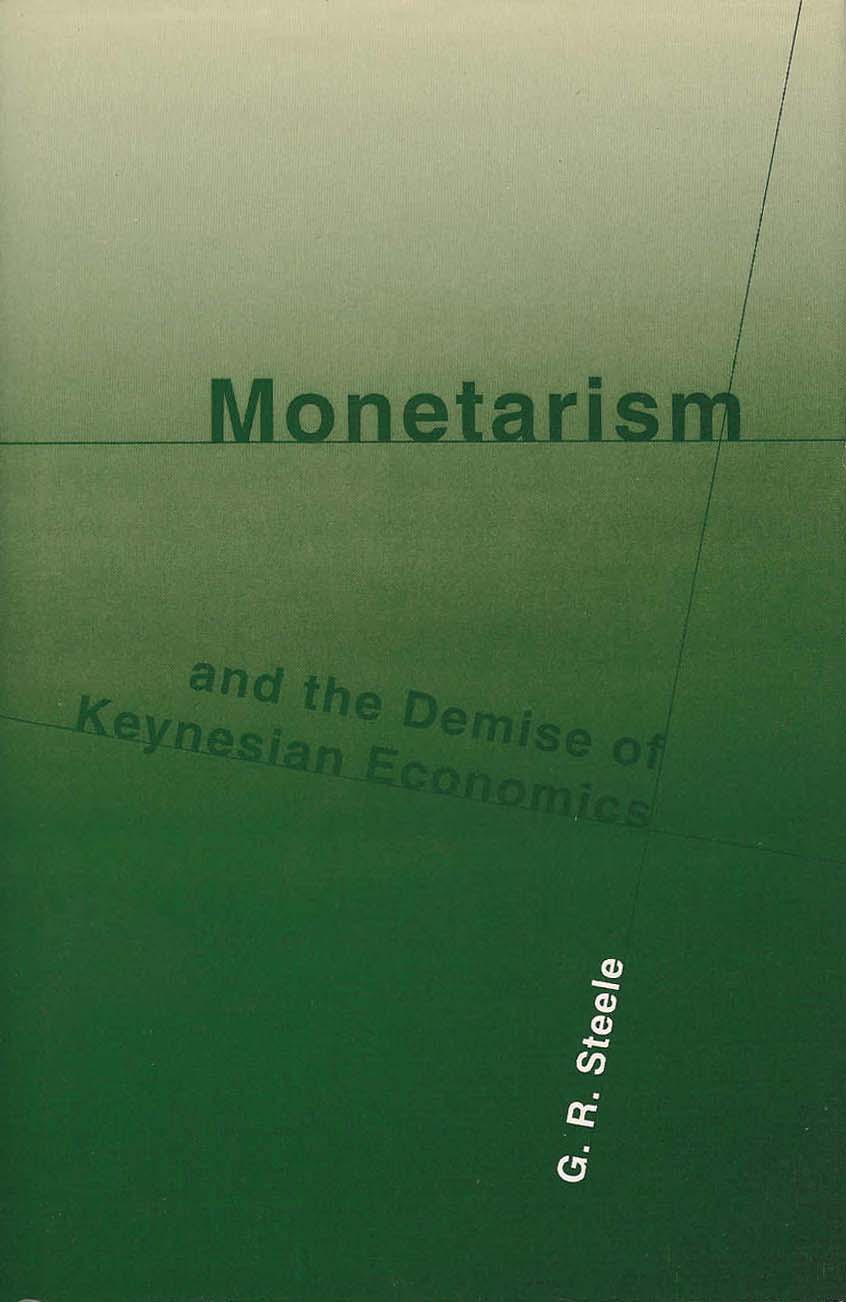Steele, G.R. (2018) The Economic Thought of Henry Clavert Simons. Crown Prince of the Chicago School
(London & New York: Routledge)
|
|
Henry Calvert Simons is worthy of interest, for many reasons. He argues that consensus is a necessary preliminary for successful policy initiatives. He held firm to libertarian principles even at the depth of the Great Depression, when others were seeking more radical options. He understands how the application of Keynes’s ‘solutions’ threatens the liberal ethos. He recognises the inescapable inter-dependence of fiscal and monetary policy. His presentation of fiscal policy is a proto-form of the ‘fiscal theory of the price level’ (aka ‘fiscal monetarism’). He gave support to the application of monetary rules in preference to discretionary interventions. He argues that the ‘near moneys’ that are the creation of commercial fractional reserve banking are likely to exacerbate business crises. He backs 100 percent reserve banking (which has affinities with Islamic finance), but anticipates the emergence of new credit extending bodies (aka ‘shadow banking’). His influence upon the US tax structure draws from a detailed consideration of a workable basis for income taxation. |
Bookshop The Biographical Dictionary of American Economists
Steele, G.R. (2007) The Economics of Friedrich Hayek (new edition)
(New York: Palgrave Macmillan)
|
|
The broad thrust of the exposition of The Economics of Friedrich Hayek is unchanged. An early chapter on Hayek’s psychology is the most notable addition with this new edition. By count of words, chapters 1 (Introduction) and 5 (Economic and Social Science) are longer by about one-fifth, while chapters 8 (Business Cycles) and 12 (Hayek’s Legacy) are reduced and increased respectively by about one-tenth. Of course (as Hayek would be quick to point out), such aggregates are misleading as indicators of the relevant microcosmic changes. |
Bookshop Lancaster Library Oxford Dictionary of National Biography: Hayek Mises Institute: Biography Review
Steele, G.R. (2006) Keynes and Hayek: The Money Economy
(London and New York: Routledge Paperbacks Direct)
(London and New York: Routledge Paperbacks Direct)
Steele, G.R. (2001) Keynes and Hayek: The Money Economy
(London and New York: Routledge)
|
|
In the recent history of economics: Who are the most significant economists? What are the most significant events? Which are the biggest theoretical and policy issues? Prime candidates are: John Maynard Keynes and Friedrich Hayek The New York Stock Exchange crash and the Great Depression Capital theory and problems of the money economy Keynes and Hayek inspired the economic controversy of the twentieth century: the role of the state, and of money and interest rates in an advanced capitalist industrial economy. In his work, Keynes points to high interest rates, low asset values and a negative wealth effect as the principle causes of a slump. By contrast, Hayek points to a system extended beyond its full-capacity by low interest rates and high investment yields. Where Keynes argues that under used capacity is symptomatic of deficient aggregate demand, Hayek viewed under used capacity as symptomatic of inappropriate investments and of a demand for consumption goods that is too pressing to allow the completion of investments in current gestation. |
Read Bookshop 1 Bookshop 2
Steele, G.R. (1993) The Economics of Friedrich Hayek
(New York: St. Martin’s Press)
(New York: St. Martin’s Press)
|
|
‘If one were to read only one book about Hayek, this should be it’
(Karen I. Vaughan, Journal of Economic Literature)
‘Many books have been published about various aspects of F.A. Hayek’s ideas, but this one is a standout’ (Jim Powell, Laissez Faire Books, San Francisco) Margaret Thatcher, the Conservative British prime minister from 1979 to
1990, was an outspoken devotée of Hayek’s writings. Shortly after Thatcher
became Leader of the Conservative Party, she “reached into her briefcase
and took out a book. It was Friedrich von Hayek’s The Constitution of
Liberty. Interrupting, she held the book up for all of us to see. ‘This’,
she said sternly, ‘is what we believe’, and banged Hayek down on the
table.” |
Bookshop 1 Bookshop 2 Oxford Dictionary of National Biography: Hayek
Steele, G.R. (1989) Monetarism and the Demise of Keynesian Economics
(New York: St. Martin’s Press)
(New York: St. Martin’s Press)
|
|
An examination of the role of money in a dynamic economy within the
context of theoretical developments both within, and in opposition to, the
Quantity Theory tradition. The book aims to integrate the most important
contributions to understanding the money economy dealing with market
competition and the impact of attempts to manipulate the economy towards
high levels of employment and output. The author emphasizes the dangers of
basing economic policy upon macroeconomic analysis and stresses the
relevance of the market process within a dynamic theory. Steele also shows
the relevance of Hayek’s work to Keynesian/monetarist controversies and
examines the impact of inflation upon economic activity, which arises from
distortions caused to relative prices. He also explains the importance of
the Ricardo effect to the business cycle and indicates the monetarist
sentiment in Keynes’ early work. The author considers that the legacy of
the Keynesian era has been costly in terms of human welfare and that
Keynes was wrong to deny the link between money and prices as established
by the Quantity Theory of money. While the most dubious aspects of Keynes’
General Theory received close attention, contributions within the Quantity
Theory tradition were neglected until drawn upon in the development of a
modern Quantity Theory - monetarism.
|
Bookshop Oxford Dictionary of National Biography: Keynes
